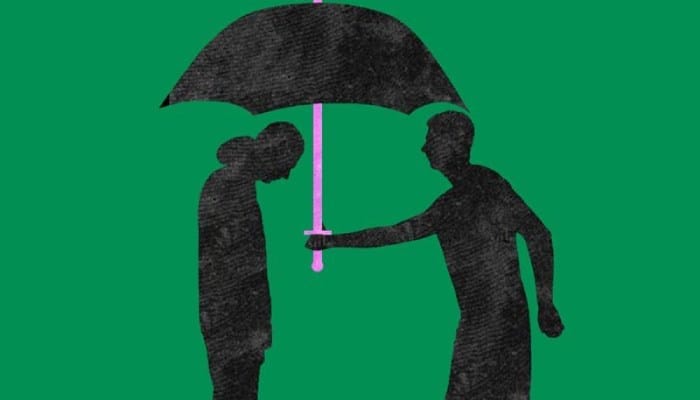
Blog
The self-sacrifice schema

The self-sacrifice schema, which means sacrificing one’s happiness, is one of the 18 primary maladaptive schemas. Do you find it hard to say no to others? Do you often agree to help others even when you don’t have time? Or do you feel frustrated when people don’t acknowledge your help? If so, you may have a self-sacrificing schema. Many people are taught to prioritize the needs of others over their own. However, self-sacrifice can be harmful to your mental health.
فهرست عناوین
ToggleRecognizing the sacrifice schema
We are taught to be kind, helpful, generous, and caring. To some extent, we all give of ourselves to others at some point. Indeed, close relationships require sacrifice, although it is not always easy. But when can you tell that you have given up too much?
If you answered “yes” to most of the following questions, you probably tend to be self-sacrifice and engaged in a self-sacrificing schema.
- Do you feel selfish or guilty when you put your needs and wants before others?
- Do you think your sacrifice is more of a duty than a voluntary act?
- Do you feel anxious when others try to help you?
- Do you tend to think of others more than yourself?
- Do you feel uncomfortable rejecting and not accepting other people’s requests?
- Do you take responsibility for the behavior of others?
- Do you say yes to everything, even if the right answer Is no?

Getting to know the sacrifice scheme
We all put the needs of others before our own at times. However, people with a sacrificial schema do this excessively and neglect their needs. They underestimate themselves; this is a pathological condition. These people believe they are not worthy of putting their needs first and do not pay attention to themselves. They do it because they feel it’s the right to do or fear rejection when they don’t serve others. Such people suppress their needs and feelings to continue their sacrifice. We all feel empathy towards others, but people with altruistic schemas feel responsible for the pain of others, and it is difficult for them to bear it without trying to fix it. These individuals experience a strong compulsion to alleviate their pain or discomfort. If they fail to do so, they tend to blame, criticize, and even humiliate themselves. Helping others makes you feel good even when you are sacrificing yourself. You feel like you have reached into their lives and added something to them. Above all, you feel like a good person, and when you focus on your needs, you often feel selfish, guilty, and self-centered.
Characteristics of people with a self-sacrificing schema
People with a self-sacrificing schema are too flexible in front of others, making them susceptible to manipulation and likely to take on excessive responsibilities. Therefore, they always feel tired and lack energy, and due to high mental pressure, they are more exposed to psychosomatic diseases and cardiovascular and digestive problems in middle-aged provinces than in others. Self-sacrifice may seem like a good thing at first. Helping others may lead to feelings of happiness and satisfaction, but constantly prioritizing the needs of others over your own can lead to anger and exhaustion.

When is the sacrifice schema formed?
The self-sacrifice schema forms when a person has a lot of responsibility as a child. They may have had to care for an adult, such as a parent coping with mental or physical challenges. These can range from seriously debilitating illnesses to parents who are unaware of their child’s needs. The child’s logic of this schema is shocking and tragic, the child thinks to herself that if I take care of my parents, they will be better enough to take care of me.
It is a heavy burden for a child and very important for a child’s mental health because this belief is formed in the child that if I do not take care of my parents, they will not be well, and it will be my fault. By doing that, everyone will give him a bravo, and it’s a great pleasure for him. This child gradually evaluates his value and position by helping others and believes that he should always put others first and that his needs and desires are not as important as the needs of others.
The self-sacrifice schema is sometimes the result of the emotional deprivation schema. In other words, people who suffer from emotional deprivation may have a desire to compensate for their shortcomings and deficiencies through self-sacrifice. Emotional deprivation means not receiving affection and caress in childhood. People suffering from emotional deprivation due to the lack of emotional support try to help others and selflessly prevent the repetition of such conditions for others. These people try to calm their restless inner selves with love and affection for others, and as time goes by, they become more confused.
The difference between the schema of obedience and the schema of sacrifice
At first glance, the self-sacrifice schema may seem similar to the obedience schema. People with the self-sacrifice schema consider the needs and feelings of others before their own because of guilt and compassion or self-sacrifice. In contrast, individuals with the obedience schema prioritize others’ needs out of fear of negative consequences or rejection.

Sacrifice schema therapy
Schema therapy focuses on therapeutic relationships and childhood experiences to challenge maladaptive schemas like the self-sacrificial schema.
- Define your boundaries: Self-sacrifice costs you happiness. This schema leads you to suppress or ignore your needs and feelings. Just as it is important to be kind and helpful, it is important to prioritize your needs and feelings. Setting boundaries with people and scheduling time for self-care is essential. You can do this while being empathetic and helpful and maintaining your physical and emotional health.
- Put your own needs first: It’s not selfish to love yourself. Remember to be kind to yourself. Identify your needs and give them priority. If others’ demands align with your goals, you can help them but never do it at the expense of your happiness. Ensure that sacrificing yourself for others does not become a habit.
- When to say no: For people with a sacrificial schema, saying no Is filled with guilt and fear of upsetting someone. Learning to say no is a crucial skill for your health and well-being. Your life and energy are precious resources that you should use wisely. That means you can’t deal with everything and be someone else’s savior.
- Ask others for help in life problems.
- Avoid excessive kindness
برای مشاوره رایگان و رزرو وقت (یا اگر تماس گرفتید و قادر به پاسخگویی نبودیم) شماره تماس خود را وارد کنید. ما به زودی با شما تماس می گیریم!



